Peter Schurmann. Earth Innovation Institute.
With the care of a mother tending to her child, Felipe García gently places a baby tamarind in a small handful of soil, where the sapling will slowly nurture and take root before being returned to the forest. On the edge of the Amazon, this act of life stands out amidst the backdrop of a nation devastated by decades of war and violence.
If Colombia's rivers are its arteries, the forest is its beating heart, its destiny intertwined with the future of a country struggling against a tormented past.
This is a form of resistance," says García, 30, gently stroking the ground as he reaches for another sapling, part of a small but growing nursery meant to help restore the surrounding forest.
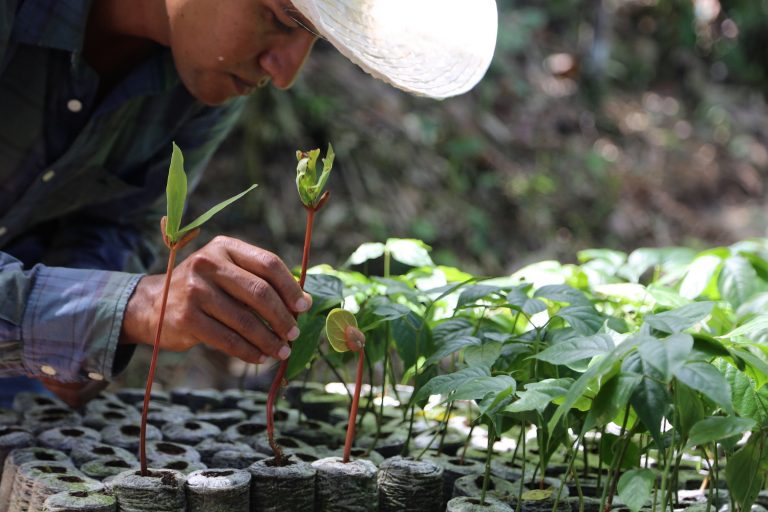
Colombia's forests are among the most biodiverse in the world: they are home to more species of birds, amphibians and plants than almost anywhere else on the planet. The Amazon, which covers much of the country's southern region, plays a key role in regulating global weather patterns. Its survival, uncertain in the midst of ongoing threats caused by deforestation and global warming, is key to avoiding the worst outcomes of climate change.
Rising rates of poverty and social inequality that in April sparked protests across the country, complicate efforts to protect these vital resources. But here, under the canopy of the world's largest rainforest where the shadows of Colombia's half-century-long armed conflict continue to lurkGarcia is part of a small team helping to sow the seeds of a more prosperous and equitable future.
Escuela Bosque, or Forest School, is a modest 40-hectare plot of land situated in the hills above Florencia, the capital of Caquetá, a largely agricultural region located at the junction of the enormous Cordillera Mountains and the Amazon rainforest. That's the landscape surrounding conservation advocate and Bogotá native Julio Andrés Rozo.
In 2019, Rozo, 40, embarked on a 400km trek through Caquetá, earning him the nickname the "Amazon Forest Gump." The trip was an opportunity to immerse himself in a region known for its sprawling cattle ranches, the backbone of the local economy, and key driver of forest loss. But it was also a kind of publicity stunt, an effort to draw attention to the plight of the Colombian Amazon, but also the opportunity it represents for Caquetá and the country.
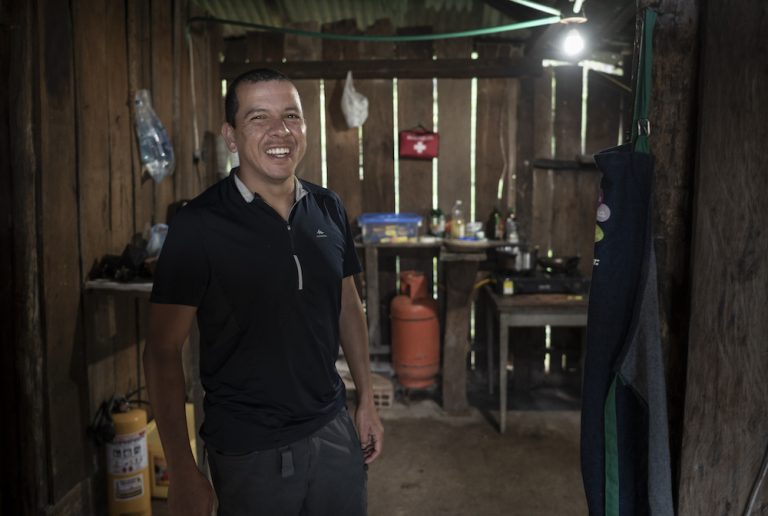
We Colombians have not been able to realize the treasure we have in the Amazon," Rozo insists. It has not been a priority for us," he says.
Deforestation in Colombia increased dramatically after the signing of the peace deal with the leftist FARC guerrillas in 2016, as areas once fenced off by armed conflict opened up to rampant land grabbing. Caquetá and neighboring departments have experienced some of the highest deforestation rates in the countryin the country. While a slowing trend appears to be emerging to curb this phenomenon, significant challenges remain, including illegal mining, narcotics and an expanding agricultural frontier.
Changing this situation requires education, a key component of the Bosque School's mission, Rozo says, pointing to several structures that will eventually serve as classrooms, workshops and lodging. Rozo envisions similar projects in other regions of the Colombian Amazon where both visitors and local farmers can experience and learn about the role of the forest as a source of life and livelihood.
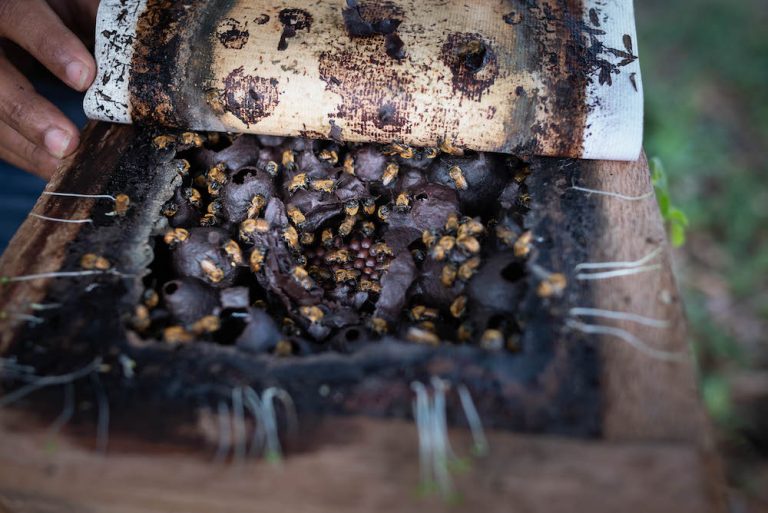
Education helps to raise awareness, but what we are looking for is action. If I want to teach sustainability, I can't be a normal teacher. I have to be a sustainable entrepreneur.
Pointing to a row of hives lining a nearby hillside, Rozo says the honey they produce is, like all aspects of Escuela Bosque, an educational tool that demonstrates the vital role bees play in the local ecosystem and, above all, their potential to generate income for families.
"That's the other half of the battle," says Rozo. To run projects like Escuela Bosque, sustainability must be economically viable for local families. My biggest challenge is not so much getting involved with my neighbors here, but getting consumers in Bogotá and beyond to recognize their role in preserving these forests," he says.
Maria Adelaida Fernandez is the Colombia Coordinator of the Earth Innovation Institute, a non-profit organization that works with regional governments to develop low-emission, forest-friendly development strategy emissions and forest-friendly technologies in the tropics.
Sustainable development is a long process. It doesn't happen overnight, says Fernández. We are building a base, but to strengthen it we need greater access to national and global markets.
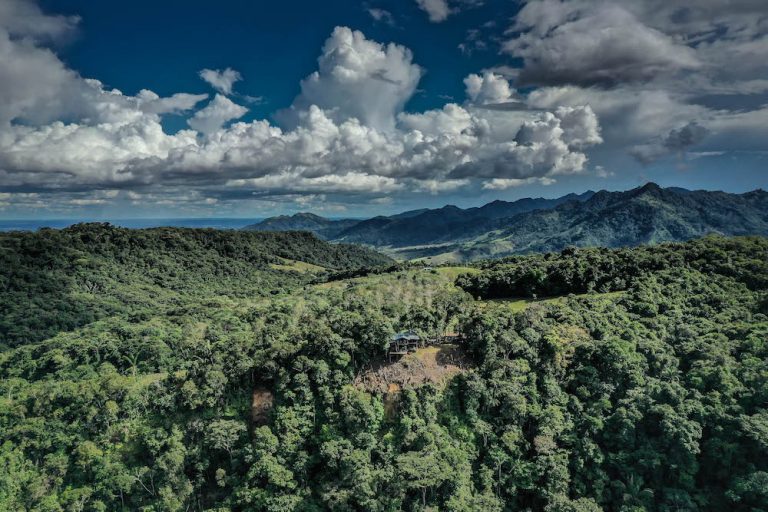
Fernández and his team are involved in several projects in Caquetá, all designed to bring more resources to the region and to add value to the forests. These include efforts to improve access to credit for local cattle ranchers who are transitioning to more sustainable business modelsThe project would also seek to obtain deforestation-free certification for sustainable cocoa producers. This would ensure access to key markets that are currently limited because they are linked to forest loss.
Fernández is also coordinating a project aimed at helping the regional government of Caquetá to sell carbon credits on the rapidly expanding global carbon marketThe rapidly expanding forests could provide valuable incentives to keep forests standing.
Right now, the forest provides no economic opportunities. This is all the people have to feed their families," says Fernández, pointing to Caquetá's seemingly endless expanse of cattle pasture."
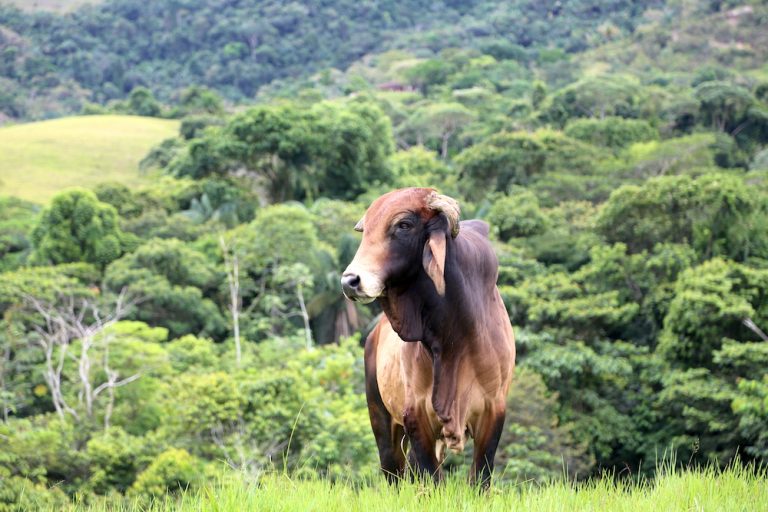
Ascending a long flight of stairs, Garcia disappears into the wall of trees surrounding the Forest School. Minutes later, sweat pouring from his brow, he finds himself crouched over a small sapling, which he carefully removes from the ground and places in a nearby container to transplant to the nursery below.
Under normal conditions, young trees must wait for older ones to fall, creating space in the canopy for much-needed sunlight to reach the forest floor before they can grow. Garcia is speeding up this process: he nurtures young trees before replanting them in previously degraded or logged forests, bringing life where death once prevailed.
For Garcia, with the right support, this process of forest restoration could serve as a alternative model to the usual approach of trading natural resources for quick cash injections: a tempting and dangerous option at a time when Colombia faces a range of social and economic challenges.
There used to be only one house there," says García, pointing to a small cluster of houses at the bottom of the hill below Escuela Bosque: "Now there are ten.
In Colombia and much of Latin America, COVID-19 drove thousands to flee their homes in the city for rural areas like Caquetá, where the burden of pandemic restrictions was lessened with greater access to fresh food, open space and clean air. Patches of cleared forest surround newly built houses, while in the distance a narrow column of smoke rises into the sky as felled trees burn to create new pastures.
Standing next to the nursery, García has faith that time will replace what has been lost. I feel tranquility here, and for me tranquility is happiness," he says.


